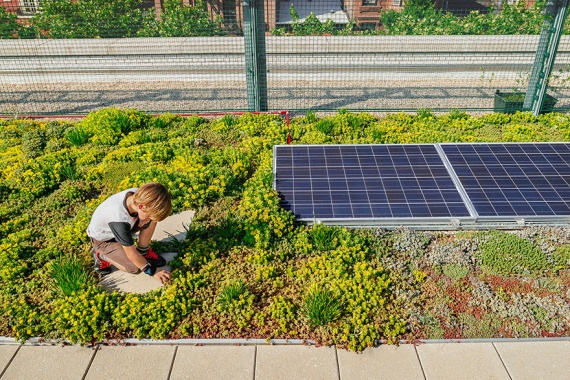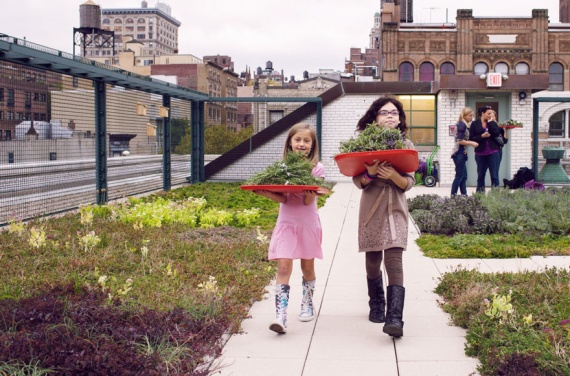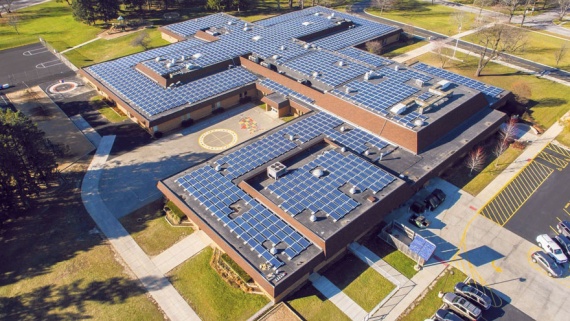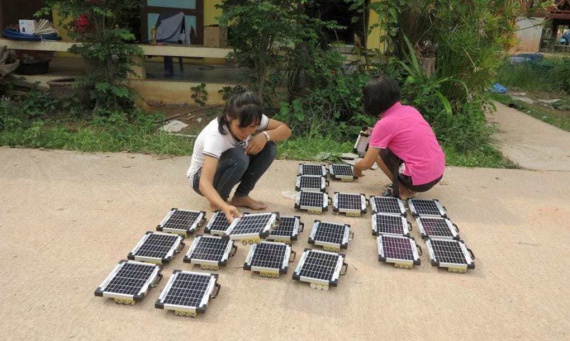
It is not effective to sit in stuffy classrooms at the desks and study nature disciplines, such as biology and ecology in theory. Therefore, in Manhattan pupils moved to the roof, and exciting practical lessons on farming replaced the boring theory.
In Manhattan pupils’ practical lessons on the roofs were first originated in 2003. A teacher of the 41st Vicki Sando High School organized an urban farm on the roof of the building. However, it didn’t cause a boisterous stir at that moment, and classes were held from time to time. The first attempts of crops growing were also useless. All seedlings withered, but Sando was not going to give up. And now, by the end of 2016 he managed to advance the project significantly, and in addition to the farm solar panels were installed here to generate clean energy. And the lessons for students on gardening and energy efficiency have gained permanent basis.

“Practical lessons showing the connection of plants and solar energy are held here. I had fifth-graders who showed on a sunny calculator how it works. We do not have an autonomous curriculum at the solar farm, but we are launching projects that are included in this plan. If we do not instil in children an interest to the environment, do not to teach them to interact with nature, they will be in trouble, «- Vicki Sando told us.
Sando’s project has received a significant publicity, and at the end of 2016 a New York Mayor Bill de Blasio has invested $23 million to install solar panels for another 24 public schools.

By the way, Sando is not the pioneer in this field. For example, in Thailand, in 2010, in the forests of the north-eastern province of Ubon Ratchathani, one of the monks (nicknamed «Sunny») founded a solar school Sisaengtham in which children could learn energy efficiency with the help of solar panels and grow vegetables and fruits in their own beds.

The school offers the usual curricula at the secondary school level, in addition to tutoring system of practical self-sufficiency, spiritualism and farming. Pupils learn to grow organic products here, which are used in the school cafeteria, as well as put up for sale, which creates an additional source of income for the school. Also, pupils have the opportunity to observe and interact with the school solar power system and to apply their knowledge and skills for creating solar projects in their communities.
Waldorf School of Cape Cod adopted this training practice and introduced a program of gardening and farming as a compulsory subject. A greenhouse with dimensions of 7 x 14 meters, where children grow carrots, spinach, cabbage and other vegetables, including greens is organized for the lessons. In the process they learn all the advantages of their own vegetable production and the steps that they need to go through to get ready-made food from seeds.
School teachers have developed a practical model for fresh food growing, even during the winter season in a climate where the worldly wisdom says that you cannot do it here.
And here is the actual process of a greenhouse making in which all the pupils take part.
The appearance of these schools is an invaluable learning tool for students on climate change and other environmental issues, and which is the most important — with a practical emphasis. Now the younger generation will firsthand know how fresh fruits and vegetables appear on the dinner tables.